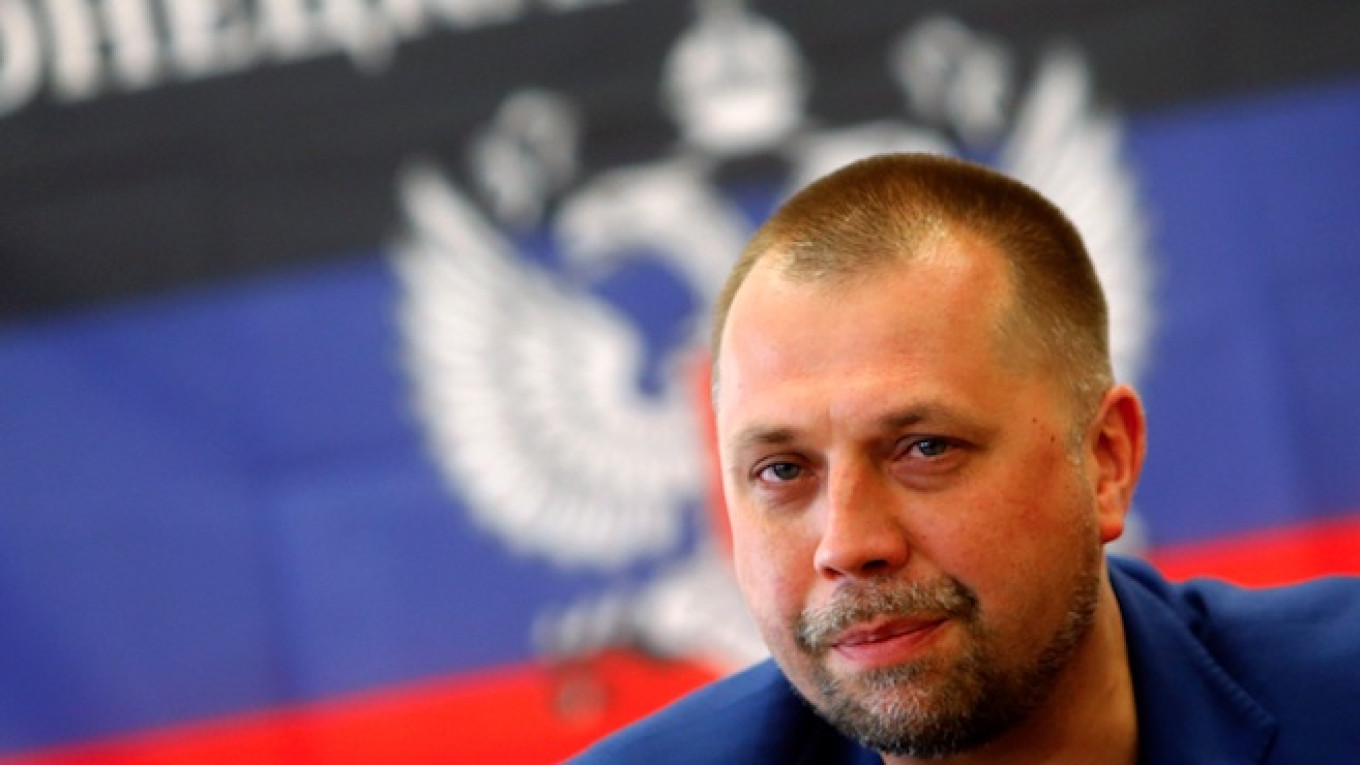Separatist leaders in two main areas of Ukraine's east have agreed to observe a ceasefire with Ukrainian forces until June 27, the self-styled prime minister of the Donetsk People's Republic, Alexander Borodai, has said.
The truce is to run parallel to a unilateral Ukrainian military ceasefire declared by Ukrainian President Petro Poroshenko on Friday as part of a peace plan to end the insurgency by pro-Russian separatists in the Russian-speaking east that threatens the dismemberment of the former Soviet republic.
The separatists' announcement, after talks which also involved a senior Russian diplomat and a former Ukrainian president, came after a day of high diplomacy in which the West urged Russia to use its influence to defuse the conflict in Ukraine's rebellious east.
Speaking after meeting a "contact group" which included a representative of the OSCE security watchdog, Borodai said: "The consultation ended with authorities of the Luhansk and Donetsk Republics agreeing to maintain a ceasefire for their part … until the 27th."
An unusual lack of armed incidents throughout Monday, making it the first nonviolent day in the east for weeks, appeared to indicate that the rebels had begun to observe their truce earlier in the day.
Volodymyr Chepovy, an official of Ukraine's National Security and Defense Council, said that from 9 a.m. to 5 p.m. no incidents of weapons use were recorded. "There were no attempts to seize administrative buildings or military points."
Former Ukrainian President Leonid Kuchma, who took part in the talks, said the agreement on a two-way ceasefire until 10 a.m. on June 27 meant "one of the key problems had been resolved."
The declaration of a rebel ceasefire after talks involving a Russian representative seemed certain to be welcomed by the West as a sign Moscow could be ready now to help engineer a settlement in Ukraine's troubled east.
Andriy Parubiy, head of Ukraine's National Security and Defense Council, said the participants at Monday's talks had also agreed there should be cooperation to free hostages.
Earlier, the European Union, with whom Ukraine will sign a landmark association and trade agreement on Friday, threw its weight behind Poroshenko's peace initiative after hearing a report from his new foreign minister, and it urged Russia to use its influence on the separatists to halt the violence.
"The EU calls on all sides to agree and honor a ceasefire immediately in order to stabilize the security situation, achieve a genuine de-escalation and create the necessary conditions for President Poroshenko's peace plan to be implemented," the EU bloc said in a statement in Luxembourg.
Though Poroshenko announced his ceasefire last Friday, Kiev reported a spate of armed attacks by rebels on Ukrainian military and border posts over the weekend.
Scores of people have been killed and wounded in Ukraine since the rebellions erupted in the industrial east in April following the toppling of the Moscow-backed president Viktor Yanukovych by protesters in February and Russia's subsequent annexation of the Russian-majority Crimea region.
The dead include about 150 Ukrainian servicemen — among them 49 who died when a cargo plane was brought down by rebel fire — and scores of rebels and ordinary citizens.
It has been the worst bloodshed in Ukraine since it became independent with the breakup of the Soviet Union in 1991.
See also:
A Message from The Moscow Times:
Dear readers,
We are facing unprecedented challenges. Russia's Prosecutor General's Office has designated The Moscow Times as an "undesirable" organization, criminalizing our work and putting our staff at risk of prosecution. This follows our earlier unjust labeling as a "foreign agent."
These actions are direct attempts to silence independent journalism in Russia. The authorities claim our work "discredits the decisions of the Russian leadership." We see things differently: we strive to provide accurate, unbiased reporting on Russia.
We, the journalists of The Moscow Times, refuse to be silenced. But to continue our work, we need your help.
Your support, no matter how small, makes a world of difference. If you can, please support us monthly starting from just $2. It's quick to set up, and every contribution makes a significant impact.
By supporting The Moscow Times, you're defending open, independent journalism in the face of repression. Thank you for standing with us.
Remind me later.


